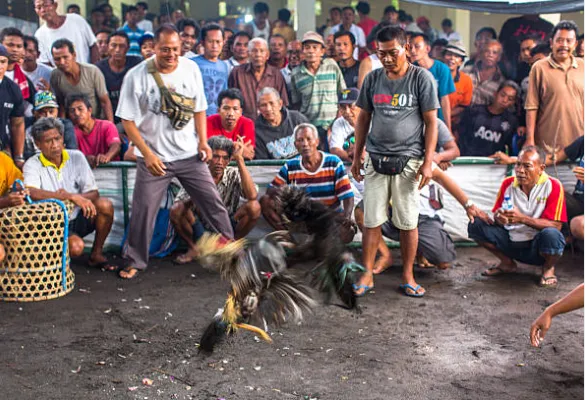House adopts Senate version of POGO tax bill (Sabong Arena)
Genre
Sabong Arena
Keywords
Online Sabong News
Article ID
00000707
MANILA - The House of Representatives has adopted the Senate version of the proposal to tax Philippine Offshore Gaming Operators (POGO), moving it a step closer to becoming law.
Lawmakers in the lower chamber voted to adopt the Senate version during the plenary session Wednesday.
The POGO Tax bill was filed in the upper chamber as Senate Bill 2332 and as House Bill 5777 in the House.
The enactment of the POGO Tax was one of the priorities mentioned by Speaker Lord Allan Velasco during the opening of the 3rd Regular Session last Monday.
"To assist in our economic recovery, we are pushing for the taxation of Philippine offshore gaming operators and e-sabong betting activities. We await and will closely monitor the Senate action on these measures." Velasco said.
Last week, House Ways and Means Committee Chair, Albay 2nd District Rep. Joey Salceda explained that the Senate version contains only minor reworkings of the House version, and that there is no difference between their tax rates and tax bases, and those of the House version.
"I personally wrote this bill to ensure that we get the proper taxes from POGOs, and that they are properly monitored and regulated," Salceda said.
Salceda revealed the following major changes:
1. The Senate version requires every alien employee of offshore gaming licensees (OGL) commonly known as POGO to have a Tax Identification Number (TIN) and imposes a P20,000 fine on the OGL for every alien employee without a TIN.
2.The Senate version removes the provision that POGOs currently registered with other special economic zones will pay at their current tax rate or 5% of gross gaming revenues, whichever is higher, and instead makes the 5% rate uniform. This is of little consequence.
3. The Senate version prevents the Aurora Pacific Economic Zone and Freeport from issuing new POGOs licenses and transfers POGOs currently registered under the zone to the regulatory ambit of the Philippine Amusement and Gaming Corporation.
4. The Senate version does not specifically provide that the income reported by POGO employees for tax purposes can be used as a basis for the computation of other mandatory contributions. We would have preferred that they keep this, but anyway, no one stops the other government corporations from using the presumptive income under the POGO tax regime as their basis for computing mandatory contributions.
5. The taxable period for the Senate version, for both POGO taxes and employee taxes, is monthly. In the House version, the remittances of taxes for POGO employees is on a quarterly basis and in advance, with a refund mechanism if taxes paid exceed tax dues for actual period of service rendered by employees.
Meanwhile, the taxable period for POGOs in the House version is annual, as in the case of other corporations.
Salceda said that POGO taxes will raise P13.4 billion in its first year, and P176.9 billion in five years.
"Both versions impose a 5% tax on gross gaming receipts for 'offshore gaming licensees' and a 25% tax on gross income for nonresident aliens working under the Service Providers of these licensees," he said.
Salceda also said that the government will impose a final tax of 25% of gross annual income, remitted annually to the BIR, with presumptive minimum tax base of P600,000 gross annual income for POGO employees.
"The Senate version slightly differs in style, imposing a minimum monthly tax of P12,500, which would have the same revenue consequence," he said.
Salceda likewise said that non-gaming income and service providers will be taxed at regular corporate income tax rates.
Salceda said that on top of the tax provisions, the House version also instituted stringent measures to monitor the personnel, supervise their operations, and punish POGO for violations of the law.
"By making POGO taxes a part of the Tax Code, they become subject to all the applicable penalties in the Code, including tax evasion," Salceda said.
President Rodrigo Duterte had certified the bill as urgent. The bill will now be enrolled for Duterte's signature.










